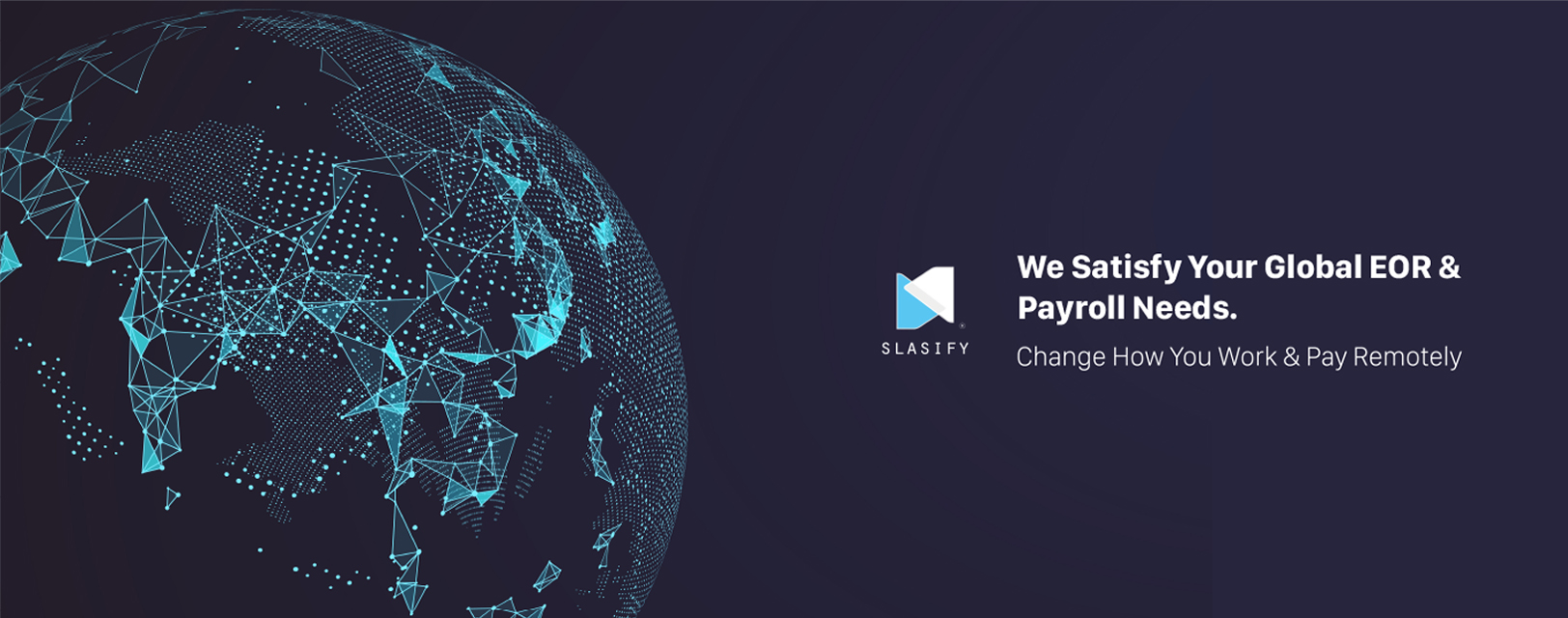Transforming Workplace and Cultivating Digitally-Enabled Talents
In this episode, we will get comfortable with Lavinia Iosub who is the co-founder of Livit Hub Bali, a digital and physical hub for entrepreneurs, startups and remote workers headquartered in Bali, Indonesia. Lavinia is a global entrepreneur with extensive experience across 4 continents, 40+ countries, and multiple industries. Lavinia is a future of work enthusiast who splits her time between Bali and other locations as a digital nomad.
Discover remote teams and the future trends of remote work and the digital nomads landscape in Bali with Lavinia Iosub. Lavinia Iosub who is the co-founder of Livit Hub Bali, a digital and physical hub for entrepreneurs, startups and remote workers headquartered in Bali, Indonesia. Lavinia is a global entrepreneur with extensive experience across 4 continents, 40+ countries, and multiple industries. Lavinia is a future of work enthusiast who splits her time between Bali and other locations as a digital nomad.
Lavinia will share some tips and strategies for companies looking to build effective remote teams, as well as for individuals who are planning to work remotely as digital nomads. We will also discuss empowering talents and cultivating transferable skills to enable them to work remotely with digital-enabled skills.
Finally, we’ll hear about the mission of Livit International and Remote Skills Academy on empowering talents and businesses to work remotely. And some legal implications that both employees and employers needs to be aware when working and hiring remotely, especially in Bali!
Could you please briefly introduce yourself and Livit International?

I’m the managing partner of a company called Live International, we are basically in many ways an umbrella that acts like an ecosystem of support services for entrepreneurs startups and remote workers that are building, you know, exciting tech and digital businesses and careers.
I’m currently in bali where we have live in bali, which is kind of a physical right hub that has coworking and office spaces and we also offer business support and admin services, fractional HR recruitment for tech and non tech roles, locations and so much more as you were saying, I’m also the founder of the remote Skills Academy, which is an education platform for Indonesians who want to learn to work remotely.
How does the Remote Skills Academy prepare talents to adapt to remote jobs?

I think for all of us this is something that we learn and for some of us perhaps it comes easier than it comes for others. So there will be kind of technical profile types of people that find it very easy to, you know, have a transition to fully remote jobs because they’re doing their job on a computer anyway. And then other people that may have been you know, traditionally perhaps office jobs like being an assistant to someone, or being a project manager, or being a community manager, right? Even all of these things are not moving entirely in the remote or digital enabled space, but they are definitely becoming a lot more hybrid and remote.
Digitally enabled work is not a trend. It’s an operating system is a way of doing things. That function is in many ways very differently than having an office (onsite) job. And I think to thrive in the future of work you need to at the very least be able to switch between the two.
I don’t think remote work is everything and will be the entire future, but I’m absolutely confident that it is part of the future.
So just like with computer programs and say being able to function on a windows or android device and knowing how to do both, enables you to work with more people and do more things in the same way. Being able to work in an office hybrid or fully remotely opens up so many more career opportunities for you, as a an individual and on the company side opens up a whole world of talent pools and options for finding the very best person in the world what you need them to do rather than limiting yourself in a radius of (perhaps) 10 km around yourself.
We agree that hiring the best-fit talent for your team should not be limited by geographical distance. At Slasify, we believe that employment compliance should not be a hindrance to hiring top talent globally..
With Livit International has been around for 10 years and Livit Hub Bali itself being around for five years, I’m sure you have witnessed firsthand the changing trends of digital nomad and working, especially for the past few years with COVID. Are there any interesting takeaways that you can share from this evolution?

Yes absolutely. So what we define as, in many ways, the future of work, because what we see the transformations that we see in the world of work right now, we’re not just about remote work. Remote work steals all the headlines right now, right? But actually what people want is a lot more flexibility and autonomy and trust. Which takes the shape of being able to work remotely and living wherever they would like to or not needing to leave their families to move to the headquarters and so on.
But it also takes the kind of manifestation of wanting to have more flexible hours, wanting to be able to manage your own work instead of being micromanaged and so on and so forth. So we’ve built, as we were mentioning earlier we’ve built companies and projects and teams that have that in their DNA from the very beginning.
And back in the day we used to be the weird ones right? Where it’s like why can’t you just go the team of developers that you can just see with your eyes and see what they’re doing in their own office and so on. And and then over the last three years some of the same very same people who thought we were making our lives unnecessarily difficult by doing, come back to us to ask how are you doing this, how do you do this by choice and not because you’re forced by a pandemic.
So it’s been a very very interesting transformation to watch.
Bali has become one of the hottest spots for remote work and workcations. What’s your take on “workcation” and additionally, could you please introduce us to the workcation program currently offered by Livit Hub Bali?

Working remotely doesn’t exclude seeing people you can actually work remotely from your team and have an amazing community, like your local co-working space or you can travel to see a part of your team or your team , record or so, which actually we have practiced for a very long time.
Some of our most successful teams take the time a couple of times a year to meet each other and, and not just have fun or have a retreat, but perhaps have a work sprint, perhaps launch the next version of their app, perhaps have a hackathon. You know, have a big milestone together. Livit Hub Bali have been organizing these for a long time now and we see that both the productivity, the results, the engagement, and the morale of the team are absolutely enhanced exponentially.
When people see each other face to face and work together. And once again, it doesn’t have to be crazy expensive. It doesn’t have to be too often, it doesn’t even have to be the entire team if you have a large team and they’re really all across the world. So there are many different ways in which you can make that happen. But this is something that I would advise all remote teams to keep top of mind.
And the way I would summarize is that the, you know, I believe sort of collaboration and connections can be perfectly sustained remotely, but they need to be often made and refreshed in person.
At Livit Hub Bali, we actually make that happen for a lot of teams under the Livit umbrella. We actually have a brand called Project Getaway which is exactly all about that.
Is there any legal implication for either non-Indonesian who are currently working remotely in Bali, as well as for the employer who happened to be non-Indonesian who would like to hire talents from the Remote Skills Academic alumni?

There are a lot of different things that need to be kept in mind both by digital nomads or remote workers who choose to work from a different place where they are from. As well as companies who want to hire remotely and individuals who want to have a remote job.
In terms of digital nomads, we see a big wave right now of countries that are trying to address that. Indonesia has recently gone through a lot of these conversations that are now two different types of visas that can be used by digital nomads. They’re not per se a digital nomad visa, but can be used by digital nomads.
In addition to the typical setup with a work permit and residents permit, I believe when you are a digital nomad that wants to be in a certain area or region or country for a while, it’s always worth checking on these things and perhaps even making decisions; based on how long you can stay legally and so on.
A lot of countries are still struggling a little bit with the difference between doing work in the country, Right?
On the side of companies, if they are very serious about hiring remote workers in jurisdictions where they don’t have an entity, would do very well to use solutions like Slasify, where you use an employer of records to hire the people you want to hire in the country and you actually give those people the benefits of being an employee such as contributing into social systems, potentially getting pensions, contribute to taxes, and all of those things.
When it comes to our alumni from the Remote Skills Academy, we always run a at least one workshop in our courses about legal and compliance.
I would highly encourage everyone to short term experiments, by taking freelance projects or small gigs, or get hired to consult with you for a few hours. But when you want to enter a longer term relationship with the employe, you want to count on both on the company side and on the individual side. I would really recommend everyone to take these things seriously because after a while it can be a huge concern.
Listen to the full episode to navigate the world of digital nomads, digitally-enabled talents, and the workcation program in Bali from Lavinia’s perspective. Discover how businesses can benefit from remote work and learn tips and strategies for building effective remote teams
Ready to take the first step in expanding your talent pool and hiring global remote talent? Schedule an exploratory call and discover how Slasify can help make global hiring and payroll instant and seamless!
Planning to bring your remote teams for offline collaboration in Bali? Workcation with Project Gateway by Livit Hub Bali with special discounts exclusively for our listeners!

Connect with our speaker: Lavinia Iosub, Managing partner of Livit International and Founder of Remote Skills Academy.
Slasify is designed to facilitate remote work and enable businesses to quickly build global teams. We offer global payroll services, including social security payments and tax filing, in over 150 countries worldwide, making it easy for business owners and professionals to seamlessly connect with the world. With our practical experience in serving the world’s top 100 companies, we are well-equipped to meet your needs. Get in touch with our global payroll experts to help you set up your global team at speed.




